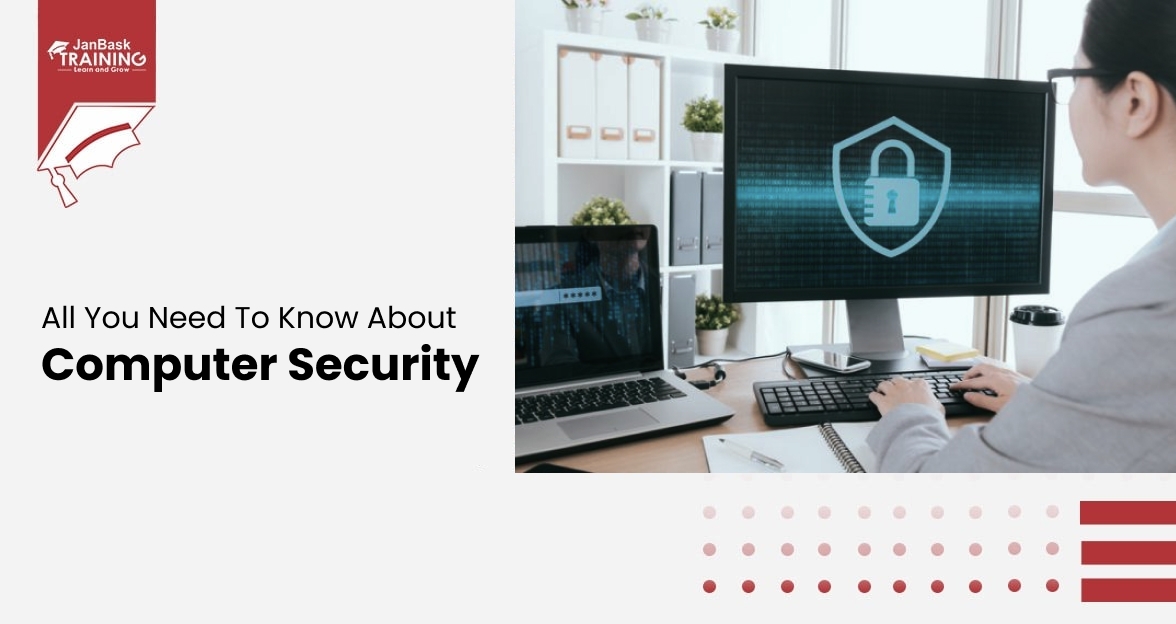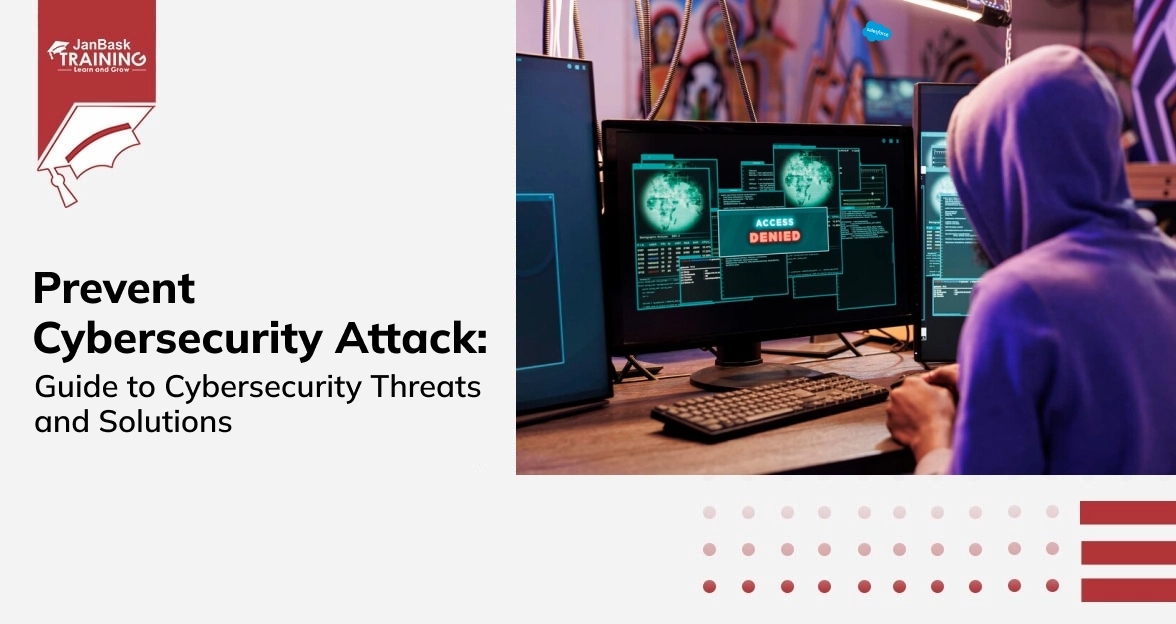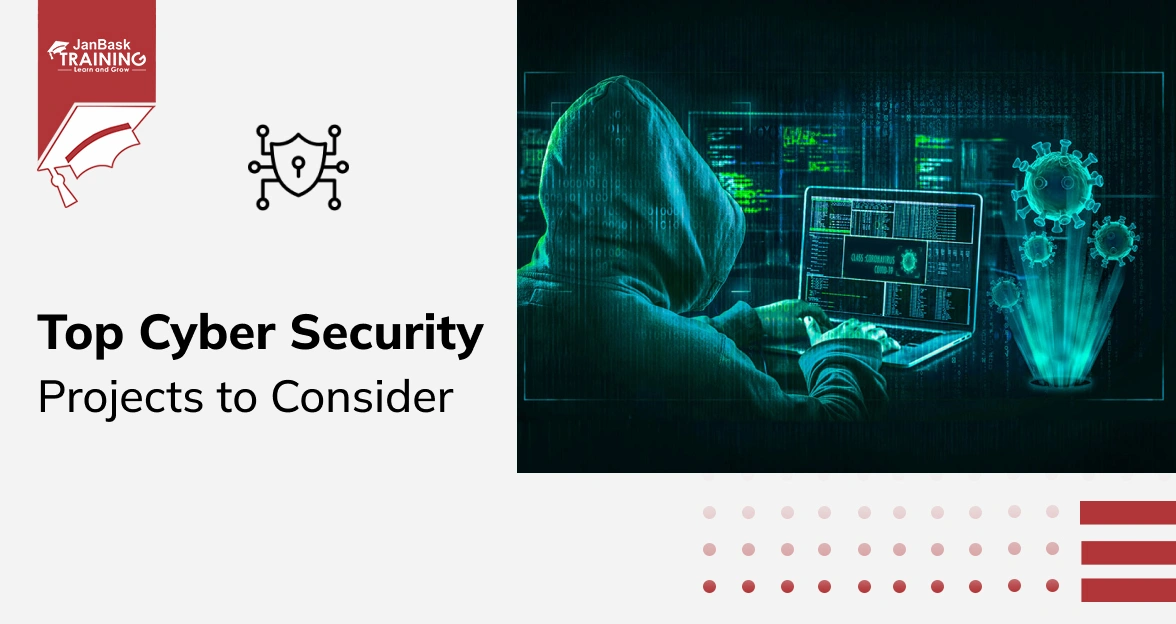Introduction
For years, people believed that cybersecurity was only for coding wizards or hardcore techies. That belief is outdated and honestly, it’s holding a lot of talented people back. Today, cybersecurity eligibility criteria have shifted dramatically, making space for professionals from all kinds of backgrounds.
Whether it’s ransomware crippling hospitals or data breaches leaking millions of records, the demand for defenders has never been greater. The best part? You don’t need to be a programmer to join the fight. In fact, today’s security teams value skills like analytical thinking, communication, adaptability, and risk awareness just as much as technical know how.
If you've ever wondered, can a non-technical person become a cybersecurity professional, the answer is absolutely yes. Maybe you’re in business, education, law, or even customer service those experiences are often more relevant than you think. Jobs like security policy writer, compliance analyst, cyber trainer, or risk consultant all rely on strategic thinking, clear judgment, and the ability to understand people.
So, who can become a cybersecurity professional? Pretty much anyone who’s serious about learning and ready to step up. In this guide, we’ll walk through the real cybersecurity eligibility criteria, introduce you to career paths you may not have considered, and show you how to move forward even if you’ve never written a line of code.
How the Cybersecurity Profession is Opening Doors to More People Than Ever
Cybersecurity used to be a space mostly filled by IT professionals and computer engineers. But that’s no longer the case. Today, companies are dealing with threats that require more than just coding skills. So, who can become a cybersecurity professional now? The answer: people from all kinds of backgrounds.
As the cost of cybercrime keeps climbing expected to hit $10 trillion globally by 2025 organizations are scrambling to find skilled defenders. But there’s a major gap: more than 3 million jobs in cybersecurity are unfilled around the world. To close that gap, employers have started rethinking their cybersecurity eligibility criteria, moving away from just hiring tech experts.
Plenty of newer roles in this space now focus on skills like communication, policy development, and crisis management. These jobs prove that a non technical person can become a cybersecurity professional and add real value to a security team.
Cybersecurity Awareness Trainer
This role involves teaching employees how to recognize and avoid threats like phishing emails. It’s more about people skills and understanding behavior than technical knowledge.
Data Privacy Officer
This person helps companies stay in line with privacy laws like GDPR and CCPA. They write policies, train staff, and reduce legal risk by protecting sensitive data.
Incident Response Coordinator
When a breach happens, this person takes the lead. They coordinate teams, make fast decisions, and keep things under control. It’s a job that relies heavily on leadership and communication.
Threat Intelligence Analyst
This role is about analyzing patterns and predicting threats before they hit. While some technical understanding is helpful, strong research and reporting skills matter just as much.
Modern cyberattacks don’t just target software—they take advantage of gaps in policies, human mistakes, and legal oversights. That’s why cybersecurity teams are stronger when they include people with different types of experience.
So, who can become a cybersecurity professional today? Anyone who’s willing to learn and committed to solving problems. If you've been asking yourself whether a non technical person can become a cybersecurity professional, the answer is clearly yes—and the industry needs more people like that now.

Who Can Become a Cybersecurity Professional? Let’s Clear Things Up
A lot of people think cybersecurity is only for tech experts or people with computer science degrees. That’s just not true anymore. This field is opening up, and really, anyone who’s willing to learn can become a cybersecurity professional.
Maybe you’re a student from a non-tech background, thinking about changing careers, or coming back to work after some time off—there’s definitely a place for you here. It’s mostly about curiosity, dedication, and a bit of patience.
Become an expert Cyber Security Professional with our EC Council Accreditation Course. Explore an extensive range of Cybersecurity essentials:
- Security basics
- Cryptography
- Network security
- Securing applications
1 Students: No Computer Science Degree Needed
Don’t let your major stop you if it’s not computer science. Whether you study business, arts, or sciences, cybersecurity welcomes you. What really matters is being curious and good at solving problems, not just coding.
Start by learning the basics how computers connect, what makes data safe, and simple security ideas. There are tons of beginner-friendly courses online. JanBask Training, for example, is great for newbies.
And the best way to learn is by doing. Join online challenges or labs on sites like TryHackMe or Hack The Box. They’re fun and help you build real skills.
Also, don’t forget soft skills. Being able to communicate clearly and work well with others is super important.
2 Thinking About Changing Careers? You Can Do This
Wondering, can a non technical person become a cybersecurity professional? Yes, absolutely! Lots of people switch from other fields and do really well.
If you worked in marketing, you probably know how to get people’s attention—that helps a lot when teaching others about cyber risks. If you come from finance, you know risk analysis, which fits perfectly. Even people with admin or HR experience bring useful skills like organization and teamwork.
Start small. Get some beginner certifications like CompTIA Security+ or Cisco CyberOps Associate. Then look for internships or entry-level jobs to get hands-on experience.
Remember: Not all cybersecurity jobs need programming. Many focus on policies, training, or data analysis.
3 Already in IT? This Could Be Your Next Step
If you’re already a system admin, network technician, or in IT support, you’ve got a solid base to build on. Learning cybersecurity can open doors to new roles that pay better and offer more responsibility.
You might want to explore things like how to respond to security incidents, hunt for threats, or test systems for weaknesses. Certifications like CEH or CISSP help you stand out.
This path helps you move from keeping systems running to actually protecting them.
4 Returning to Work After a Break? No Problem
If you’ve taken time off for family, health, or other reasons—cybersecurity offers flexibility that many jobs don’t.
You can learn online at your own pace and even find remote or part-time roles. Many companies understand career breaks and care more about what you can do now.
Joining communities and finding a mentor can really help you get back into the swing of things.
5 Veterans and Law Enforcement Folks
If you’ve served in the military or police, you already have skills like discipline, attention to detail, and strong ethics.
These qualities fit well with jobs in cyber forensics, compliance, or incident response. There are programs that help turn your experience into recognized cybersecurity qualifications.
It’s a meaningful way to keep protecting people, just in a new setting.
6 Gamers, Puzzle Lovers, and Curious Minds
If you love games, puzzles, or figuring out how things work, you might find cybersecurity exciting. Ethical hackers, for example, use their curiosity and skills to find weaknesses before the bad guys do. Try joining bug bounty programs or security projects online. They’re great ways to learn and get noticed.
Quick Tips to Get Started
- Think about what you’re good at and what interests you. Cybersecurity has a spot for many talents.
- Use free or low-cost online courses to learn the basics.
- Get hands-on with labs, competitions, or internships.
- Connect with people through forums or meetups.
- Keep learning, because this field changes fast.
So there you have it. Who can become a cybersecurity professional? Almost anyone willing to start learning and keep at it. The door is open just take the first step.
Skills That Matter More Than a Degree: What You Really Need for Cybersecurity
When people ask, “Who can become a cybersecurity professional?” a lot think you need a fancy computer science degree. But honestly, that’s not how it works. What matters way more are the skills you bring, how you think, and if you’re ready to stick with it.
Cybersecurity is a mix of thinking clearly, knowing some tech basics, and being able to talk with others without confusing them. These things matter more than the piece of paper you have.
Spotting What Others Don’t
People in cybersecurity have to look through tons of data to find the tiny clues that something’s wrong. Being able to notice patterns that seem off—that’s gold. You can practice this by doing puzzles or checking out real stories about hacks. It’s like training your brain to catch sneaky stuff.
Solving Problems Like a Pro
Hackers change how they attack all the time, so you have to think on your feet. It’s not just about using tools; it’s about trying different ways to fix things and always having a backup plan ready.
Being Curious and Not Giving Up
If you’re someone who keeps asking, “Why did that happen?” or “How could someone use this against us?” then you’ve got the right mindset. And it’s important to keep going, even when something’s tough. That’s how you get better at this job—by sticking with it and learning more every day.
Talking So Everyone Understands
It’s not just about the tech stuff. You’ll need to explain tricky ideas to people who don’t speak “computer.” Writing clear notes and helping others understand why security matters is a big part of the job.
Knowing the Basics of Networks and Systems
You don’t have to be a coding wizard, but you do need to know how computers talk to each other and how operating systems work. Learn what TCP/IP means, what firewalls do, and get comfortable with Windows and Linux. Lots of free lessons and practice labs online can help with this.
So really, when you wonder “who can become a cybersecurity professional?”, think less about degrees and more about these skills. If you’re curious, patient, and ready to learn, you can make it work.
Key Cybersecurity Certifications to Help You Get Started and Move Up
So, you’re wondering, who can become a cybersecurity professional? Well, one of the best ways to show you’re serious is by getting some certifications. Think of them as little proof badges that say, “Hey, I know my stuff.” They help employers trust you and also guide your learning.
Certifications for Beginners: Where to Start

CompTIA Security+
This one’s really popular for beginners. It covers the basics like how networks stay safe, managing risks, and simple encryption stuff. The good part? You don’t need any previous experience, so it’s perfect if you’re just starting out.
Systems Security Certified Practitioner (SSCP)
If you want something more hands-on, this certification is about the day to day stuff like managing secure systems and networks. It’s great if you want to do real work, not just theory.
Google Cybersecurity Professional Certificate
This is a pretty cool one because it’s based on real projects. You learn by doing, not just reading. It’s beginner friendly and focuses on practical skills that companies look for.
Moving Ahead: Intermediate and Advanced Certifications
Certified Ethical Hacker (CEH)
This one’s about learning how hackers think. You find out their tricks so you can defend better. It’s great if you want to be the person who tries to break into systems before the bad guys do.
Certified Information Systems Security Professional (CISSP)
This is a big, well-known cert that covers lots of security topics, from protecting important stuff to running security teams. Usually, people go for this if they want leadership roles.
Certified Information Security Manager (CISM)
If managing security policies and making sure everything fits with business goals sounds like your thing, this cert is for you. It’s about the bigger picture.
Offensive Security Certified Professional (OSCP)
Known for being tough, OSCP requires you to actually hack into systems during the exam. It’s super respected and proves you can handle real world hacking challenges.
Certifications for Special Interests
Computer Hacking Forensics Investigator (CHFI)
If you like investigating cyber crimes and figuring out what happened after a breach, this cert teaches you how to recover data and analyze evidence.
GIAC Security Essentials (GSEC)
This cert shows you know the technical basics and some advanced stuff like incident response and cloud security. It’s pretty broad.
Certified Cloud Security Professional (CCSP)
With everything moving to the cloud, this cert focuses on protecting cloud systems. You learn about cloud setups, risk management, and keeping data safe.
Why Bother Getting Certifications?
Honestly, certifications can boost your salary by 15-20% compared to people without them. They also open up better jobs and leadership chances. But don’t just chase certs alone get real experience too. Labs, projects, internships that’s what really makes you job ready and stands out to employers.
Cyber Security Training & Certification
- Personalized Free Consultation
- Access to Our Learning Management System
- Access to Our Course Curriculum
- Be a Part of Our Free Demo Class
How to Know if Cybersecurity is the Right Fit for You? A Thoughtful Guide to Choosing Your Path
Deciding on a career path is a major life choice, and cybersecurity is no exception. While it offers rewarding opportunities, it also requires specific qualities and interests to succeed. Reflect honestly on the following questions to see if this field fits your strengths and passions.
1. Do You Enjoy Problem-Solving and Critical Thinking?
Cybersecurity is all about tackling complex puzzles and uncovering hidden weaknesses. If you find satisfaction in analyzing situations, thinking creatively to solve problems, and enjoy detailed investigations, this career will suit your mindset well.
2. Are You Comfortable with Continuous Learning?
The cybersecurity landscape is constantly evolving with new threats and technologies. Professionals must be willing to learn and adapt regularly, through self study, training programs, or hands on experiments, to stay effective in defending against attacks.
3. Can You Perform Well Under Pressure?
Cyber incidents often happen unexpectedly and demand calm, clear headed decisions within tight deadlines. If you thrive in fast paced environments and can manage stress without losing focus, cybersecurity can be a fulfilling career choice.
4. Do You Have Strong Ethics and a Sense of Responsibility?
Handling sensitive data and protecting privacy comes with serious ethical responsibilities. If you value integrity, trustworthiness, and consistently doing the right thing even when no one is watching you’ll fit well in cybersecurity roles.
5. Are You an Effective Communicator?
Cybersecurity isn’t just technical; it requires explaining risks clearly to executives, training non-technical staff, and collaborating with various teams. Strong verbal and written communication skills help bridge the gap between complex tech and everyday understanding.
When Cybersecurity Might Not Be the Best Fit
- If you prefer structured, repetitive work with clear-cut rules rather than ambiguity and problem-solving.
- If you resist adopting new technologies or methods as the field rapidly evolves.
- If complex technical challenges cause you excessive frustration or stress.
- If you do not place high importance on ethics and responsibility in your professional life.
Being honest with yourself about these factors helps prevent burnout and ensures you pursue a meaningful and lasting career in cybersecurity.

How to Get Started in Cybersecurity—No Matter Your Background: A Clear Step-by-Step Roadmap
Starting a career in cybersecurity can seem intimidating, but with the right approach and resources, the path is accessible for everyone. Here’s a step-by-step guide tailored to different backgrounds.
For Students
- Build a solid foundation: Begin with free or affordable online courses that cover the basics of cybersecurity. This early learning is essential for understanding more advanced concepts later.
- Engage in hands-on practice: Participate in Capture The Flag (CTF) challenges and use platforms like Hack The Box or TryHackMe to simulate real world cyberattack scenarios, helping you gain practical skills.
- Seek mentorship: Connect with experienced cybersecurity professionals on LinkedIn or industry specific forums. Their guidance can help you navigate the field and avoid common pitfalls.
- Consider internships: Even unpaid internships provide valuable real-world experience and enhance your resume while expanding your professional network.
For IT Professionals
- Identify your specialization: Choose an area of cybersecurity that interests you, such as incident response, penetration testing, governance, or security awareness training. Focusing your efforts accelerates your career growth.
- Earn relevant certifications: Obtain certifications like CompTIA Security+ or Certified Ethical Hacker (CEH) to validate your skills and increase your attractiveness to employers.
- Volunteer or lead security projects: Take initiative by volunteering for or proposing cybersecurity projects at your current workplace, which helps build hands-on experience.
- Network with cybersecurity communities: Engage in industry events and online groups to stay updated on trends and uncover job opportunities.
For Career Switchers
- Assess your transferable skills: Skills such as communication, risk management, and auditing are highly valuable in cybersecurity roles and should be highlighted.
- Enroll in foundational programs: Comprehensive courses like those offered by JanBask Training can provide a structured introduction and guide you through your learning journey.
- Develop a portfolio: Document your labs, projects, and certifications to showcase your practical skills and dedication to potential employers.
- Target entry-level roles or apprenticeships: These positions offer hands on experience that is crucial when transitioning into cybersecurity from another field.
For Returners and Stay-at-Home Parents
- Choose flexible learning options: Opt for self paced online certification programs that fit your schedule, making it easier to balance learning with other commitments.
- Join support and mentorship groups: Being part of a community provides encouragement, advice, and accountability during your career restart.
- Look for remote job opportunities: Many cybersecurity roles are now location independent, offering flexibility that suits those managing family or other responsibilities.
For Everyone
- Stay current with industry news: Follow cybersecurity blogs, podcasts such as “Krebs on Security” or “Darknet Diaries,” and other trusted sources to keep up with the evolving threat landscape.
- Join online forums and communities: Platforms like Reddit’s r/cybersecurity, LinkedIn groups, and Discord channels allow you to engage with peers and learn from shared experiences.
- Maintain a consistent learning schedule: Dedicate regular time, even 30 minutes daily, to study and practice. Steady progress beats sporadic, intense sessions.
- Practice with labs and simulations: Use virtual labs, Capture The Flag challenges, and open-source projects to apply your knowledge and build real-world skills.

Final Thoughts: You Might Be Exactly Who Cybersecurity Needs
Not everyone wakes up knowing what career they’re meant for. But if you’ve made it this far, reading about cybersecurity, chances are there’s something in it that’s pulling your interest. And that’s worth listening to.
The truth? You don’t need to have a computer science degree or years of coding behind you to get started. What matters more is your mindset being curious, responsible, and willing to keep learning as things change.
There’s a massive shortage of cybersecurity professionals right now. Companies big and small are looking for people who can step in and help defend against growing threats. That includes students fresh out of college, people switching from other careers, or even folks who’ve never worked in tech but are ready to dig in and learn something new.
At its heart, this field is about protecting people. If that idea means something to you, then you're already halfway there. So, if you've been wondering, "Can someone like me do this?" the honest answer is yes.
Start small. Learn a bit every day. And don’t underestimate what you’re capable of. This might just be the start of something meaningful
Cyber Security Training & Certification
- No cost for a Demo Class
- Industry Expert as your Trainer
- Available as per your schedule
- Customer Support Available
FAQs
Q1. Can I work in cybersecurity without a technical background?
A: Yes, you can. Many cybersecurity roles today focus on skills like communication, analysis, compliance, and policy writing. With the right mindset and training, even non-technical professionals can thrive in this field.
Q2. What kind of jobs are available in cybersecurity for non-tech professionals?
A: Roles like cybersecurity awareness trainer, compliance analyst, data privacy officer, incident response coordinator, and risk consultant are ideal for people without deep technical knowledge.
Q3. Do I need a degree in computer science to start a cybersecurity career?
A: Not necessarily. While a degree can help, it’s not mandatory. Employers often look for certifications, problem-solving abilities, and practical experience more than formal degrees.
Q4. What are the first steps to start a cybersecurity career?
A: Start with learning the basics of cybersecurity through online courses. Then, pursue beginner certifications like CompTIA Security+ or Google’s Cybersecurity Professional Certificate. Hands-on labs and simulations are also highly recommended.
Q5. Are there cybersecurity roles that don’t require coding?
A: Yes. Many cybersecurity jobs do not require coding, such as GRC (governance, risk, and compliance), security awareness training, policy development, and audit roles. However, learning basic scripting can still be beneficial.
Q6. Can career changers transition into cybersecurity?
A: Absolutely. Many professionals from fields like law, finance, HR, education, and customer service successfully transition into cybersecurity by leveraging their transferable skills and earning relevant certifications.
Q7. What certifications should beginners consider in cybersecurity?
A: Certifications like CompTIA Security+, Google Cybersecurity Professional Certificate, and SSCP (Systems Security Certified Practitioner) are excellent starting points for beginners.
Q8. How long does it take to get into cybersecurity?
A: It depends on your background and dedication. With focused learning and hands-on practice, many people can become job-ready in 6–12 months through self-paced or instructor-led training programs.
Q9. Are there remote jobs in cybersecurity for beginners?
A: Yes, many entry-level cybersecurity jobs are remote-friendly, especially in roles like security analyst, compliance support, threat monitoring, and cybersecurity training.
Q10. Is cybersecurity a good career for the future?
A: Definitely. With over 3.5 million global job openings projected in cybersecurity by 2025 and increasing cyber threats, the demand for skilled professionals is growing rapidly across industries.
Trending Courses
Cyber Security
- Introduction to cybersecurity
- Cryptography and Secure Communication
- Cloud Computing Architectural Framework
- Security Architectures and Models
Upcoming Class
-1 day 12 Sep 2025
QA
- Introduction and Software Testing
- Software Test Life Cycle
- Automation Testing and API Testing
- Selenium framework development using Testing
Upcoming Class
9 days 22 Sep 2025
Salesforce
- Salesforce Configuration Introduction
- Security & Automation Process
- Sales & Service Cloud
- Apex Programming, SOQL & SOSL
Upcoming Class
0 day 13 Sep 2025
Business Analyst
- BA & Stakeholders Overview
- BPMN, Requirement Elicitation
- BA Tools & Design Documents
- Enterprise Analysis, Agile & Scrum
Upcoming Class
0 day 13 Sep 2025
MS SQL Server
- Introduction & Database Query
- Programming, Indexes & System Functions
- SSIS Package Development Procedures
- SSRS Report Design
Upcoming Class
0 day 13 Sep 2025
Data Science
- Data Science Introduction
- Hadoop and Spark Overview
- Python & Intro to R Programming
- Machine Learning
Upcoming Class
0 day 13 Sep 2025
DevOps
- Intro to DevOps
- GIT and Maven
- Jenkins & Ansible
- Docker and Cloud Computing
Upcoming Class
4 days 17 Sep 2025
Hadoop
- Architecture, HDFS & MapReduce
- Unix Shell & Apache Pig Installation
- HIVE Installation & User-Defined Functions
- SQOOP & Hbase Installation
Upcoming Class
-1 day 12 Sep 2025
Python
- Features of Python
- Python Editors and IDEs
- Data types and Variables
- Python File Operation
Upcoming Class
7 days 20 Sep 2025
Artificial Intelligence
- Components of AI
- Categories of Machine Learning
- Recurrent Neural Networks
- Recurrent Neural Networks
Upcoming Class
0 day 13 Sep 2025
Machine Learning
- Introduction to Machine Learning & Python
- Machine Learning: Supervised Learning
- Machine Learning: Unsupervised Learning
Upcoming Class
34 days 17 Oct 2025
Tableau
- Introduction to Tableau Desktop
- Data Transformation Methods
- Configuring tableau server
- Integration with R & Hadoop
Upcoming Class
-1 day 12 Sep 2025





























